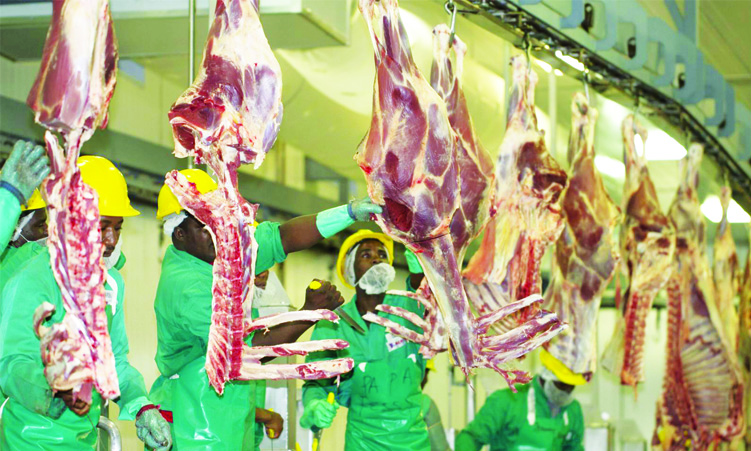The Namibia Meat Corporation (Meatco) says the removal of the current redline will push the company and farmers out of business.
According to Meatco executive for logistics Adrianatus Maseke, the current markets open to Namibia rely on the guarantee that the beef and cattle exported are free from foot-and-mouth disease and its effects.
“If we lose this guarantee, we will automatically lose all our markets and farmers will also lose the market to export live cattle,” says Maseke.
He adds that the only way to get rid of foot-and-mouth disease is to get rid of all the buffalos in that area, which is not possible. Moreover, he says despite the redline, Namibians across the country do eat beef from the northern part of the country without their knowledge.
This was said during a Meatco Business Connect for Small Medium Enterprises meeting in Windhoek on Wednesday.
Maseke said the company is currently engaged with a proposal to to re-open its cannery, which was closed in 2021 due to the poor condition of cannery machinery.
“The proposal is currently under review with the board and it will be a private-public partnership,” said Maseke.
He added that the largest market currently for Meatco is Norway, although the corporation is trying to get into other markets like the United States of America (USA).
“Access to the USA market is challenging because they consume more fatty beef like wagyu. However, we sell Brahman but there are still opportunities in the market we are looking into,” said Maseke.
Norway is the largest market for Namibia with about 60% of exports.
Meatco aims to slaughter 100 000 cattle in the current year, which is about 50% of the capacity of the company.
“Due to droughts, previously we were only able to slaughter 15% of our total capacity,” said Maseke.
Namibia Chamber of Commerce and Industry chief executive Charity Mwiya said Namibia is in trouble in terms of food security.
Speaking at the same platform, she said Namibia should venture into irrigation, which is an area the private sector should be looking into.
Mwiya said it is vital for businesses to identify and grab opportunities within the value chain of many industries.
Additionally, she added that Namibian businesses should be open to partnerships, especially in light of the African Continental Free Trade Area.
“When businesses will come here, they will come as a consortium and in the end we will have a situation where we will be working for this outside businesses because they have partnered to be stronger,” said Mwiya.
Stay informed with The Namibian – your source for credible journalism. Get in-depth reporting and opinions for
only N$85 a month. Invest in journalism, invest in democracy –
Subscribe Now!






